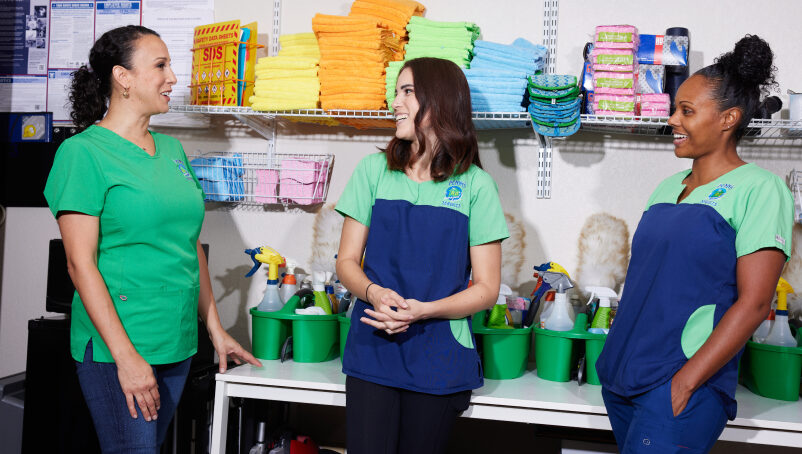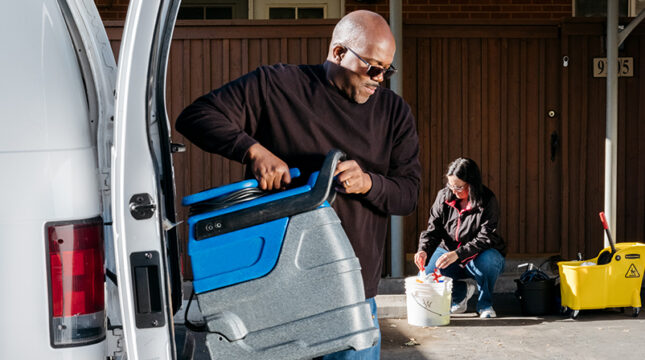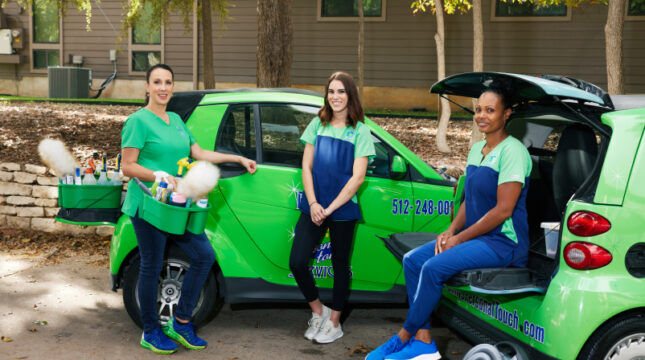How to start a Texas cleaning business in 6 steps
- Choose your business structure and register (if required)
- File an assumed business name
- Get an Employer Identification Number (EIN)
- Get protected with the right business insurance for a Texas cleaning business
- Get a business license
- Obtain a Certificate of Authority
Starting a cleaning business in Texas is relatively straightforward. With the right paperwork and planning, you can be up and running in no time.
Read more: How to start a cleaning business. Get tips for your business plan, finances and marketing.
1. Choose your business structure and register (if required)
Your business structure affects how you’re taxed, your personal liability, and the paperwork required to get started. Common options include:
- Sole proprietorship: Easy to start and manage, but offers no personal liability protection. In Texas, sole proprietors generally don’t need to register with the state.
- Limited liability company (LLC): An LLC offers personal liability protection and flexibility. You must file a certificate of formation with the Texas Secretary of State to form an LLC.
- Corporation or partnership: More complex structures suited for businesses with multiple owners or investors. These also require registration with the state.
If you’re forming an LLC, corporation or limited partnership, you’ll need to register with the Texas Secretary of State through the SOSDirect portal. Sole proprietors and general partnerships typically only need to file a “Doing Business As” (DBA) with the county clerk’s office.
Small businesses often opt for sole proprietorship due to its simplicity. If you’re launching your business in Texas, there’s no need to register with the state; you only need to file a “Doing Business As” (DBA)
2. File an assumed name certificate
If your business name differs from your legal name, you’ll likely need to file an Assumed Name Certificate — also known as a DBA. This lets you operate under a custom business name and opens the door to branding opportunities.
Requirements vary depending on your business structure and location, so check with your local government office.
3. Get an Employer Identification Number (EIN)
You’ll need an EIN from the IRS to hire employees, open a business bank account or apply for financing.
Getting it is easy. Visit the IRS website and follow the instructions. This is a free service offered by the Internal Revenue Service, and the process is very quick.
4. Get protected with the right business insurance for a Texas cleaning business
The right business insurance in Texas can do more than just protect your business. It shows potential clients you’re professional and trustworthy — and sometimes, it may be required by law or clients. Common types of small business insurance coverage you might need could include:
General Liability insurance
General liability coverage in Texas can help protect against some of the most common business risks and accidents. This liability policy can help shield your business from losses associated with non-employees suffering bodily injury at your business (such as a slip-and-fall injury).
It can also be helpful if you or your employees accidentally damage someone else’s property — and you’re on the hook to repair or replace it.
Learn more about general liability for cleaning businesses.
Workers’ Compensation insurance
Unlike most states, Texas law does not require most businesses to carry a workers’ comp policy. Even though it’s not mandated, this policy could still help your business cover medical expenses and wage replacement for employees who get ill or suffer an injury on the job.
Learn more about workers’ comp for cleaning businesses.
Commercial Property insurance
Commercial property coverage can help protect the physical assets you need to do your job, such as a storefront or storage facility, equipment and inventory. It can help safeguard your business property against risks like fire or theft.
Tool and Equipment insurance
If everything you bought for your work — vacuums, window washers, cleaning products, etc. — were to vanish, would you have the funds to replace them all at once?
If your owned or borrowed equipment gets stolen, lost or damaged, this coverage could help you get back to work fast and help with replacement or repairs — in your vehicle, in storage or at a job site.
Tools and equipment coverage is an add-on to general liability insurance for contractors and cleaning businesses.






